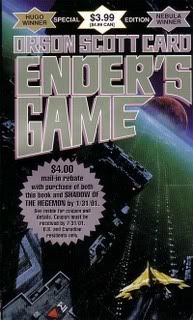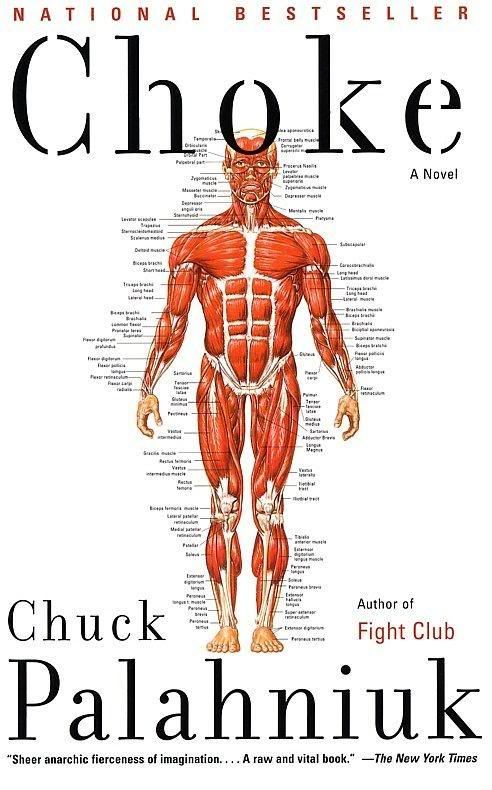 A while ago I wrote about the Ender's Game series by Orson Scott Card. I finally finished reading the companion series begun in Ender's Shadow. I wasn't necessarily looking forward to reading this series, even though I enjoyed Ender's Game so much. You'd have to be a fool not to have some trepidation about a book that is supposed to happen simultaneously with the first one. I usually hate the idea that there's an "untold story" with the same characters that you just didn't hear about the first time. And even in this case where I actually did like the book, I still can't say I approve of the idea. It seems to me that all too often authors who are lacking inspiration return to earlier successes. Be that as it may, as I said I actually did enjoy this book immensely.
A while ago I wrote about the Ender's Game series by Orson Scott Card. I finally finished reading the companion series begun in Ender's Shadow. I wasn't necessarily looking forward to reading this series, even though I enjoyed Ender's Game so much. You'd have to be a fool not to have some trepidation about a book that is supposed to happen simultaneously with the first one. I usually hate the idea that there's an "untold story" with the same characters that you just didn't hear about the first time. And even in this case where I actually did like the book, I still can't say I approve of the idea. It seems to me that all too often authors who are lacking inspiration return to earlier successes. Be that as it may, as I said I actually did enjoy this book immensely.I'm going to assume you're familiar with Ender's Game. Ender's Shadow deals with Bean, a well-known and quite important character. He is the one who metaphorically stands in Ender's shadow. The book ends at roughly the same point as Ender's Game, with the characters having gone through pretty much all the same things. There was evidently quite a bit more going on behind the scenes than you would ever guess from the first book. It's well-written and almost captures the magic of the original book. It's definitely Orson Scott Card's best writing since then. As I wrote before, the sequels to Ender's Game do not stand up to the original. This series is different. Card has evidently set aside much of his metaphysical musing in favor of actually telling a story. Bean's story progresses into the world after Ender is banished, dealing with the politics of the world left behind after the end of the war. Bean plays a major role in the new government formed by Peter, Ender's brother, who we meet late on in Ender's Game when he's already Hegemon. The Bean series deals equally with Bean's efforts on Peter's behalf as much as Bean's search for his origins. Both parts of the story are quite interesting, and it seems Card finally returned some of his focus to speculative fiction, a focus that was overwhelmed by his philosophical musings in the later Ender books. The span of this series is quite a few years, from when Bean goes into battle school to when he's a grown adult.
Some of Card's books are pretty good in terms of story, and some aren't so great. The Bean series is solid, and these books aren't overly huge. I'd almost recommend reading Ender's Game, skipping the rest of those, and reading the full Ender's Shadow series. However, Card says that he's going to write another sequel in the Bean series which will unite the two series. That'll be interesting.


